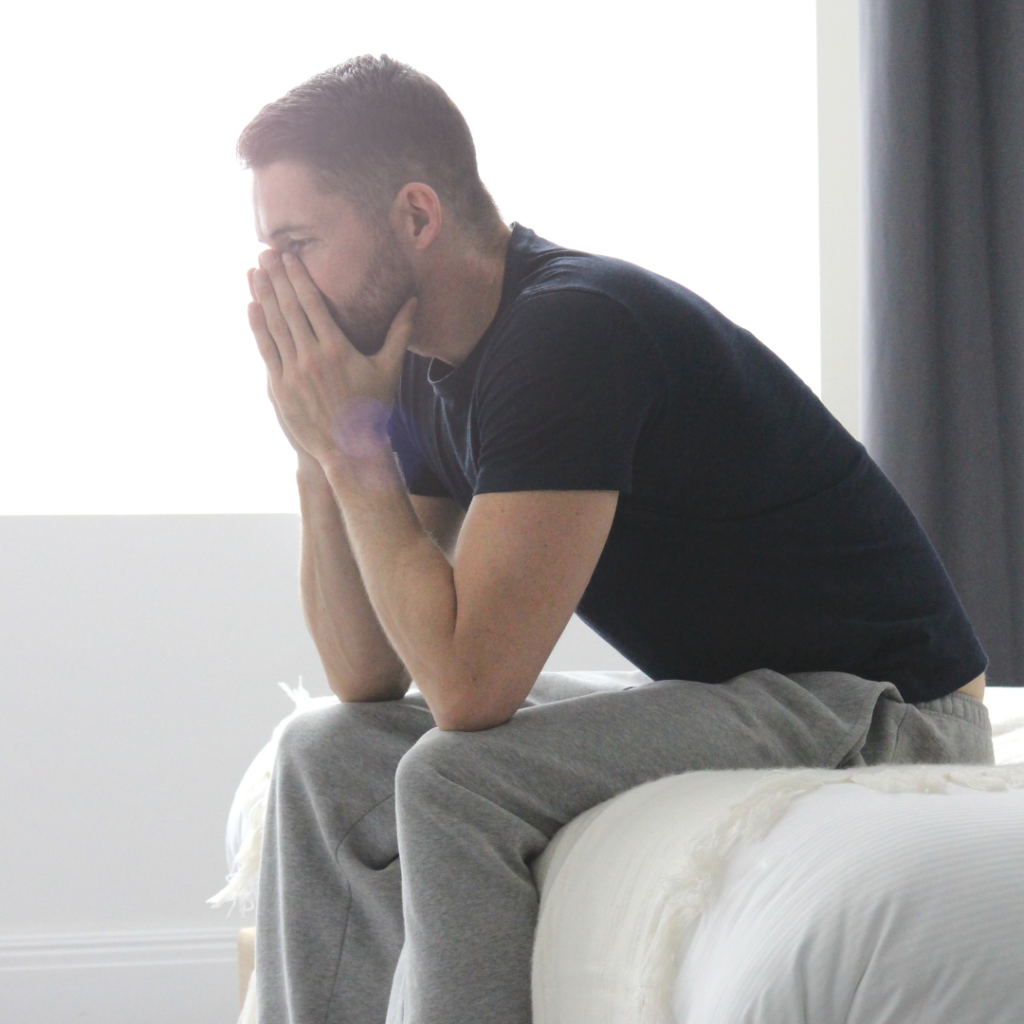by Stacey C. Conroy, LICSW, MPH

–
Mark’s (Not his real name) OCD symptoms revolved around his fears of becoming severely ill, and he worried constantly about coming into contact with germs. As a teenager, he began routinely disinfecting surfaces around the house and keeping his bedroom in a particular order to facilitate regular cleaning. Mark often worried he’d forgotten one surface, and would clean the entire area again. During his late teens, Mark began drinking alcohol socially with friends, and over time, discovered that drinking while taking benzodiazepines provided a sense of relief and control over his anxiety and fears of illness.
Unfortunately, Mark’s use of these two substances increased to the point that he was using them both daily, and the sense of relief and control the substances had initially provided him was harder to achieve now. In addition, the negative consequences of substance use began to cause more stress, and Mark’s anxiety and fears of illness began to intensify again.
At this point, Mark decided to enter treatment. Since he was experiencing the most distress due to his substance use,
Mark decided to enter a residential substance use treatment program. While initially helpful, the program staff ended up discharging Mark for “non-compliance” because he was consistently late for treatment groups. The truth, however, was that Mark was late to groups due to his time-consuming cleaning rituals. But because he was too embarrassed to disclose his OCD symptoms, Mark chose to leave treatment.
At a later date, Mark returned to this same SUD treatment program, and this time the staff noticed the excessive cleaning rituals. Again, it was observed that these behaviors were getting in the way of him attending treatment groups. In fact, some of the staff even thought Mark had OCD, but unfortunately, because they felt unequipped to help him with his OCD symptoms, they chose again to discharge him for non-compliance.
After this second discharge, Mark now decided to try to get treatment for his OCD symptoms, which had continued to get worse. Mark first tried to find a residential program specializing in OCD, but he was told that because he had an active problem with addiction, he was disqualified for admission. This happened again and again.
Mark then thought he might have better luck looking for outpatient treatment for his OCD and his SUD. Again, he was met with clinician after clinician who told him they would only treat his OCD if he had been sober for at least three months. Therapists who would treat his SUD did not understand the anxiety and the impairment caused by his OCD, so again, Mark found himself at a loss about how to access effective treatment options.
Unfortunately, Mark’s experience is not unique. Many OCD programs often refer individuals with SUD to substance abuse treatment as a prerequisite of admission. SUD programs often do not screen specifically for OCD, and even if they did, most clinicians at SUD programs are not adequately trained to treat OCD. Over time, as OCD symptoms interfere with an individual’s ability to meet the expectations of the SUD program, the individual often fails and is discharged for non-compliance. Similarly, if a patient is in an OCD program and relapses with substance use, they are discharged for non-compliance.
Where Do We Go Now:
We need to realize that treating OCD and SUD concurrently is a necessity for recovery. Developing the knowledge and seeking the tools to do so is part of that process. Treatment providers and researchers need to expand their understanding of effective concurrent treatment for OCD/SUD. Those with OCD/SUD, their families, and friends will be better advocates if we are all better informed. We hope to get the conversation moving forward and increase access to effective concurrent treatment for OCD/SUD.
About the Author Stacey C. Conroy is a Social Work, Public Health professional specializing in Substance Use Disorder & co-occurring anxiety disorders. Stacey routinely provides in-service trainings to diverse professionals on various behavioral health topics to include SUD, OCD, ACT and ERP. Stacey also co-hosts OCD SUD Recovery is Possible, a monthly series on youtube, with Dr. Patrick McGrath.